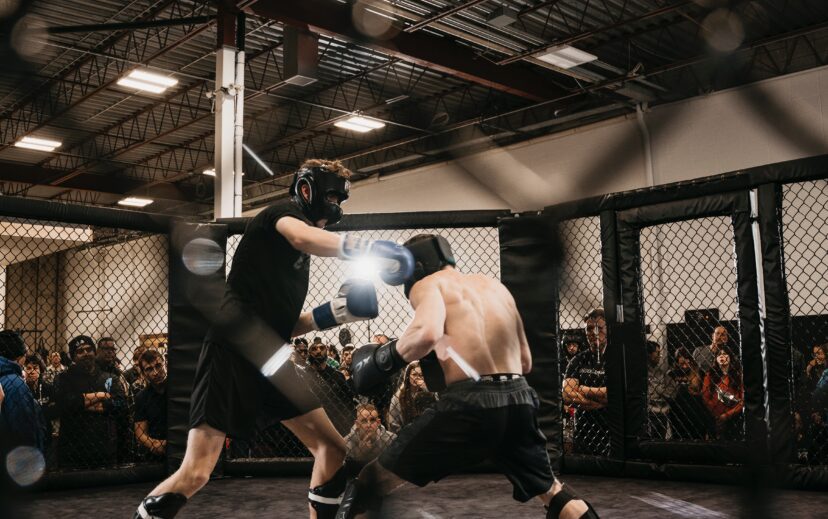Updated on March 27, 2024
In August 2023, fighters suing the Ultimate Fighting Championship (UFC) landed a significant blow in their ongoing antitrust lawsuit, after a court ruling elevated the lawsuit to a class action.
On January 18, 2024, U.S. District Judge Richard F. Boulware denied a motion for summary judgment brought by UFC in the hopes of avoiding a trial.
On March 13, 2024, a little more than a month before trial was set to begin in the U.S. District Court of the District of Nevada, the UFC and the fighters reached a $335 million settlement. According to reports, within 20 minutes of the settlement’s announcement, the UFC’s stock price had jumped more than 5% and was up 7.84% at market close. UFC shareholders were clearly pleased to see the fighters’ lawsuit, with estimated potential damages set as high as $1.6 billion, be resolved out of court.
Our team of reputed sports and entertainment attorneys can help explain what led up to this settlement agreement.
Background on the case against the UFC
Since 2014, the UFC has been embroiled in lawsuits with several fighters (now former fighters) in its organization over claims that it abused its monopoly power to suppress fighter pay. The fighters alleged that the UFC violated the Sherman Antitrust Act, 15 U.S.C. § 2. This type of antitrust violation focuses on the actions that a single organization has taken to maintain its dominance or control in a marketplace.
The fighters who sued the UFC include some big names in combat sports – Cung Le, Nate Quarry, Jon Fitch, Brandon Vera, Javier Luis Vazquez, and Kyle Kingsbury. In 2014, these fighters combined their separate lawsuits into a single suit against the UFC.
With an alleged 90% share of the market, the UFC is the largest promoter of mixed martial arts events. The fighters claimed that the UFC schemed to establish such overwhelming market dominance that it could pay its fighters substantially less than what they would have been paid in a competitive market for their services. The fighters alleged that the UFC bought up its five biggest rivals in the mixed martial arts industry since 2006, creating a monopsony that violates federal antitrust laws. A monopsony exists when there is one dominant buyer of a particular good or service. The fighters argued that because the UFC bought out its competitors, the UFC is a monopsony as the only buyer of a fighter’s services.
How were fighters previously paid by the UFC?
The UFC treats fighters as independent contractors, not employees. Generally, fighters received no salary or benefits. According to one of the court’s decisions in this case, “the UFC does not pay for a fighter’s training, or any other expenses related to a fighter’s development or maintenance of their respective fighting skills.” In other words, UFC fighters were only compensated when they participate in a bout. Notably, however, UFC fighters are not permitted to compete for other organizations while under contract; this is more akin to a fighter being an employee, rather than an independent contractor.
What did the fighters want?
As posted on the website established by the fighters’ attorneys to keep fighters and the public in the loop about this case, “One of their goals [was] to recover money for all 1,200 fighters. Another goal [was] to force the UFC to change the way it does business.”
Specifically, the fighters sought to stop the UFC from imposing unfair contract terms. As one example, the fighters wanted a ban on long-term contracts to allow them to seek alternative opportunities sooner and test the market or “free agency.” With a competitive marketplace for mixed martial arts bouts, the fighters would likely earn far more money; at a minimum, the fighters could choose from a variety of leagues within which to participate.
What impact did the class action certification have on this case?
A class action is a type of lawsuit in which a large number of people (known as a “class”) allege that they have been injured by a common act and sue a defendant for that harm as a group.
Here, U.S. District Judge Richard Boulware decided on August 9, 2023, to grant class action status to more than 1,200 fighters who competed in live professional UFC-promoted mixed martial arts bouts between December 2010 and June 2017. The UFC appealed the class action certification, but the Court of Appeals for the Ninth Circuit rejected its appeal in November 2023.
The class action certification meant that these 1,200+ fighters who fought in the UFC are automatically part of the lawsuit. Unless a UFC fighter “opts out,” their claims would be included in the case.
The fighters sought between $800 million and $1.6 billion in damages from the UFC. In antitrust lawsuits, like this one, the damages are tripled, which meant the UFC could potentially have had to pay nearly $5 billion.
Conclusion
Now that the litigation has settled out of court, we can expect to see the impact not just for the UFC fighters, but across the entire sports industry. For more guidance on the interplay between sports, business and law, reach out to a member of our team.
Contributions to this blog by Ryan White



